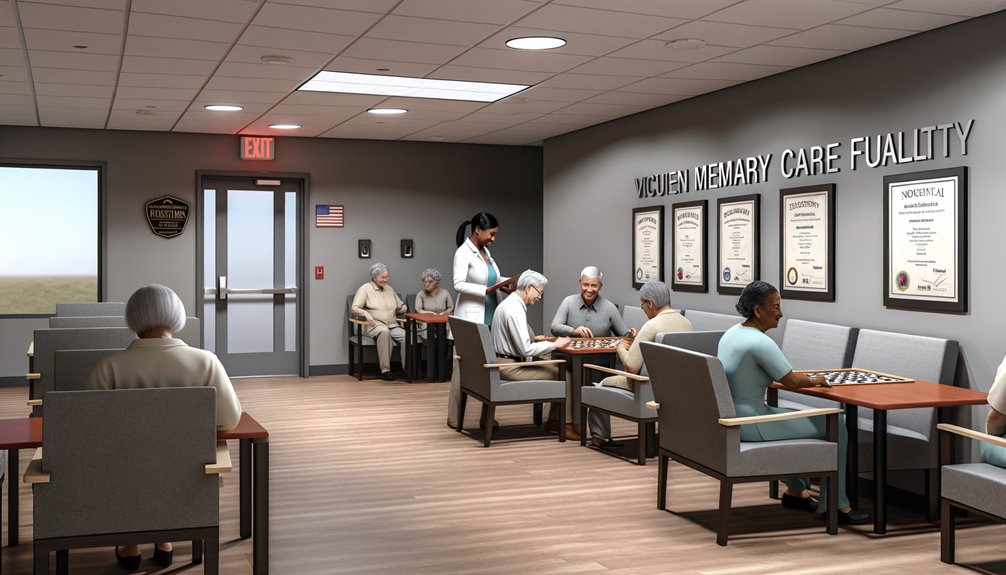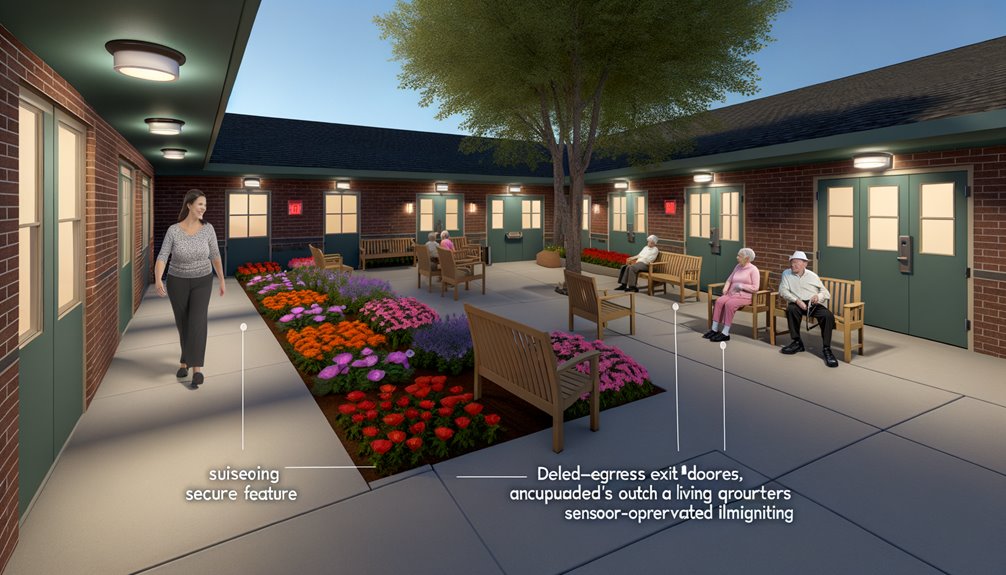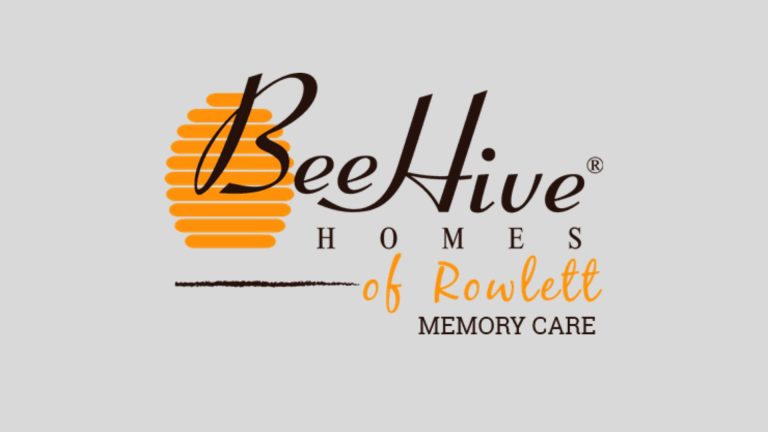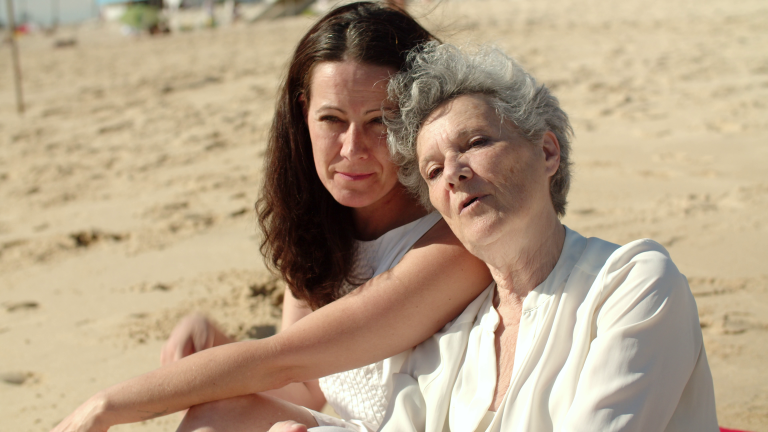Finding the Best Memory Care Near You: What to Look For
When finding the best memory care near you, guarantee the facility complies with regulatory requirements and has specific licensure for memory care services, such as those in Arizona. Look for Joint Commission Memory Care Certification, which indicates high quality standards and structured care plans. Check for staff training in dementia care, including certifications like the Evergreen Certified Dementia Care Specialist. Verify the presence of controlled access points, advanced monitoring technologies, and well-lit surroundings for resident safety. Also, consider personalized care plans, cognitive therapies, and engaging activities that promote social interaction and cognitive health. If you want to learn more about what makes a facility stand out, explore their approach to enhancing cognitive function, meal plans, and holistic care experiences.
Essential Key Takeaways for Choosing Memory Care Services
- Licensing and Accreditation: Verify compliance with state regulations and look for Joint Commission Memory Care Certification to ensure high quality standards.
- Specialized Care and Expertise: Confirm staff training in dementia care, including certifications, and ensure personalized care plans tailored to individual resident needs[BACKGROUND].
- Secure and Safe Environment: Evaluate controlled access points, advanced monitoring technologies, and well-lit surroundings to prevent unauthorized entry and minimize falls[BACKGROUND].
- Engagement and Activities: Recognize the importance of social interaction, cognitive stimulation activities, and holistic care experiences to enhance cognitive function and quality of life[BACKGROUND].
- Meal Plans and Dietary Considerations: Ensure meal plans meet nutritional needs, offer tailored options considering individual preferences, and incorporate healthy foods and hydration strategies[BACKGROUND].
Licensing and Accreditation

When searching for the best memory care facilities, understanding the licensing and accreditation process is essential. You need to verify that the facility complies with all regulatory requirements to guarantee quality care. In states like Arizona, assisted living facilities must obtain a specific licensure subclass to provide memory care services, which includes meeting minimum training standards for staff and contractors.
Look for facilities with Joint Commission Memory Care Certification, which indicates they have undergone rigorous on-site evaluations and meet high quality standards for dementia care. This certification requires a structured plan for care, advanced staff training, and a safe, functional environment tailored for residents with dementia.
Verifying these certifications and licenses are in place helps you trust that the facility maintains the highest quality standards and regulatory compliance. Additionally, understanding the financial burden of dementia can aid in making informed decisions about care options.
Specialized Care and Expertise
After verifying that a memory care facility is properly licensed and accredited, the next step is to guarantee that the facility provides specialized care and expertise tailored to the needs of residents with dementia. You should look for staff members who have undergone extensive training in dementia care, including certifications in Alzheimer’s and dementia care. This expertise is vital for handling the unique challenges associated with cognitive decline.
Ensure the facility adopts personalized approaches, such as individualized care plans that cater to each resident’s specific needs, preferences, and medical conditions. Also, check if they offer cognitive therapies, including memory stimulation, occupational therapy, and other activities designed to enhance cognitive function and quality of life. These specialized care elements are essential for providing compassionate and effective care. Additionally, a facility like Maggie’s Place emphasizes holistic care experiences that go beyond just medical attention.
Secure and Safe Environment

Securing a safe and protected environment is fundamental for residents in a memory care facility, as it directly impacts their well-being and quality of life. When evaluating a facility, look for controlled access points, such as secure entryways with electronic locks that require codes or keycards. This prevents unauthorized access and guarantees residents do not wander off without supervision.
Facility monitoring is also significant. Advanced technologies like wearable devices or motion sensors can track residents’ locations, alerting staff if they enter unsafe areas or exhibit unusual behavior. Well-lit surroundings are essential to minimize falls and disorientation, and staff training in emergency response is crucial to handle any situation effectively. Additionally, facilities like Sage Oak of Denton implement curated care models that prioritize residents’ safety and comfort through personalized attention.
These measures collectively enhance memory safety, providing a secure and supportive environment for residents.
Engagement and Activities
How can engagement and activities enrich the lives of residents in a memory care facility? Engaging in various activities is vital for the well-being of memory care residents. Social interaction plays a significant role in slowing down cognitive decline and maintaining cognitive function. Activities such as group discussions, game nights, and social events foster social interaction, which stimulates the brain’s neuroplasticity and enhances cognitive resilience.
Cognitive stimulation through activities like puzzles, brain games, and memory recall exercises is also essential. These activities challenge the brain, promoting mental agility and problem-solving skills. Additionally, arts and crafts, music therapy, and sensory activities like gardening and aromatherapy can provide a sense of achievement and emotional well-being, reducing feelings of loneliness and anxiety. By incorporating these activities, you can help residents stay mentally active and emotionally connected. Moreover, facilities like Bonduel Assisted Living & Memory Care Home offer advanced security systems for residents with dementia, ensuring a safe environment for engagement and activities.
Meal Plans and Dietary Considerations

What role do meal plans and dietary considerations play in the overall care of residents in a memory care facility? They are essential for maintaining the health and well-being of individuals with dementia. A well-planned meal schedule guarantees that residents meet their nutritional needs, which is critical for cognitive health and managing other common health issues like heart disease and diabetes.
When selecting a memory care facility, look for places that tailor meal plans to individual nutritional needs and cultural preferences. Facilities like Hillcrest and The Greens at Greenwich emphasize personalized meal planning, incorporating healthy foods such as leafy greens, berries, nuts, whole grains, and lean proteins. They also guarantee hydration through regular water intake and hydrating foods. This approach helps prevent dehydration, weight loss, and behavioral symptoms associated with poor nutrition, making mealtime both nourishing and enjoyable. Moreover, many memory care facilities are recognized for their Caring Stars Award, which highlights their commitment to quality care and resident satisfaction.
Staff Training and Emergency Preparedness
When you’ve found a memory care facility that tailors meal plans to individual nutritional needs and cultural preferences, the next step is to confirm that the staff is equipped to handle all aspects of care. Check the staff qualifications, particularly their training in memory care. Look for certifications such as the Certified Dementia Practitioner (CDP) or Certified Alzheimer’s Caregiver (CAC), which indicate advanced knowledge and skills in managing dementia-related behaviors and providing person-centered care.
Also, confirm the facility has robust emergency protocols in place. This includes regular training for staff, annual risk assessments, and emergency plan reviews. The facility should conduct evacuation drills and test their communication plans annually to confirm readiness for various emergencies, such as natural disasters or medical crises. This thorough preparation confirms the safety and well-being of residents during unforeseen events. Additionally, the use of personal care partners in memory care settings helps ensure that residents receive individualized attention and support tailored to their specific needs.




